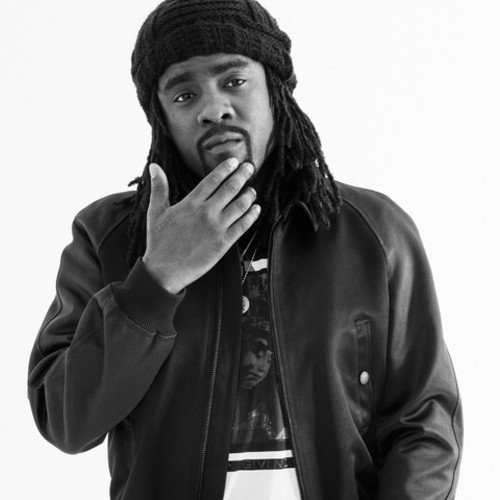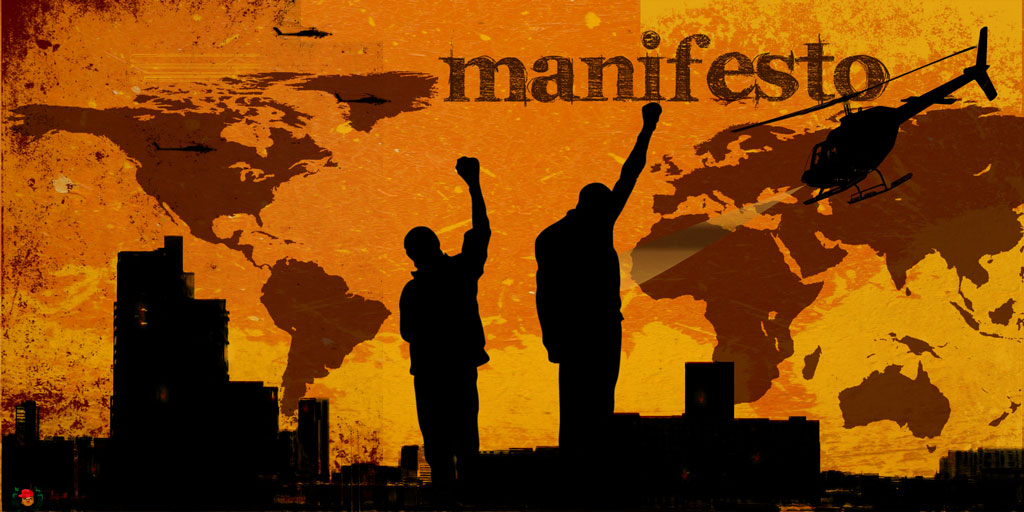When Black Entertainers Use "Black-on-Black Crime" - Chris "Preach" Smith
 Monday, September 21, 2015 at 10:32AM
Monday, September 21, 2015 at 10:32AM  Photo Credit: Power953
Photo Credit: Power953
Recently, Seattle Seahawks cornerback Richard Sherman
took time out during a media day to address the impact
of the Black Lives Matter movement. But his comments
soon took a turn towards decrying the violence within the
Black community - speaking on “Black on Black crime”
without fully using the term. He spoke from an intensely
personal place in describing how one of his close friends
was murdered in his Los Angeles neighborhood and spoke
of the two who did it. A day or so after, the D.C. rapper
Wale made a statement online wondering about why there
wasn’t more of an outcry among crime within the community.
Both of their statements reflect a conversation that has
been ongoing in the community for quite some time. And
both are, in truth, incorrect in both their placement of this
issue as a counter to successful Black activist protests being
sustained and that there isn’t any attention paid to the
violence within the Black community. And that is something
that has to be said.
The “Black-on-Black crime” trope has been trotted out as
a weapon more frequently over the past few years by a legion
of right-wing white conservatives, Republicans and some
Libertarians. There’s also a slew of Black and Latino right-wingers
who will tout that trope as a knee-jerk reaction, and have
done so more openly during the current presidency of Barack
Obama. I use the word “weapon” because that’s precisely
what it is. It is used to derail and belittle on various levels
in a psychological manner. And those who use it, whether
passively or aggressively, know its weight. That said, these
two instances of entertainers speaking on this topic has gotten
them a lot of pushback from many on social media. For Richard
Sherman, it has made him the ironic recipient of support from
the white right-wingers. The same ones that literally and
figuratively called him a “thug” for being aggressively confident
and displaying braggadocio during his team’s Super Bowl run
two years ago in place of “uppity darkie” or whatever slur they
wanted to confer on him. It’s also sparked a dialogue between
Sherman and his former teammate, Michael Bennett who took
him to task for his comments. As for Wale, he hasn’t made any
follow-up comments yet. But it is surprising for someone who
at times has shown a more mature sense of understanding
of issues to make comments like that. And some will point to
the fact that in some degree, his rapping and albums lend to the
climate of misogyny and objectification that plagues rap on a
whole these days. But what isn’t spoken of with regards to these
two figures in entertainment is just how prevalent this thinking
is in our community. Remember Peggy Hubbard, the grandmother
who spoke in an expletive-filled rant about Black Lives Matter
and why we don’t do more in our community to stop the violence?
She was touted as an instant hero on Fox News. But we all know
a Peggy Hubbard. Remember Martin Baker, the St.Louis area
Black politician who stood with supporters of the Ferguson Police
Department who launched a thousand memes thanks to his
country-club pose? We all know someone like that. We in the
community have relatives who drop these statements every so
often, almost like parrots. But what doesn’t get brought up in the
wake of these comments are questions. Questions like, “so what
have YOU done?” Questions like, “have you been to this civic
meeting, seen this group raising funds, etc…” The usage of the
“Black-on-Black crime” trope insults those people who have been
in the community for years - decades even - trying to help lessen
the ills that plague the community. It shouldn’t be a statement.
We tend to do that to ourselves far too often, especially if we feel
that no one agrees with our position. I once wrote about a pastor
in Harlem and the Bronx that literally monitors social media of
teens involved in gangs. He does so to essentially prevent beefs
that could lead to shootings. He does so with little to no fanfare
and financial backing. Another instance involves a group of Black
women on Chicago’s troubled South Side who have taken it upon
themselves to patrol the community. And many more. But they
are fighting a hard battle, when you consider the systemic issues
of budget cuts to vital programs and companies cutting jobs to
gain more relief and profits. Those using the trope to suggest
that Black people and Brown people don’t care about what goes
on in their communities don’t really care about Black and Brown
people. It comforts them to use that stereotype to mask their own
prejudice and elitism. As for those of us who use it, one has to note
their position and their intent. It’s usually those who are well off
and FEEL that they’re at a distance to throw stones in frustration
more than pitching in to build however they can. Which is why
they are met with derision.
In a society where we are growing far too comfortable with
extreme positions that aren’t nuanced and polarizing, we are
airing this conversation to the public at a risk. But there is a
benefit that outweighs that risk. And that benefit is more of a
uniform clarity. I’ve had discussions with older folks as well as
those in my own age bracket and younger and I see a growing
understanding of the weaponized usage of “Black-on-Black crime”.
I see more looking past it and beginning to assess what the issues
are on a whole. Wale and Richard Sherman aren’t the only notable
Black celebrities who think like this, without question. But they
and others who may say similar comments serve a purpose - they
show the dangers of letting misinformation and ego influence
their position of safety. One can speak to the ills without siding
with the greater oppression at hand. Especially those in a better
position of influence. Hopefully Wale and Sherman realize the
error of their ways, along with others still clining to this hurtful
trope.


Reader Comments